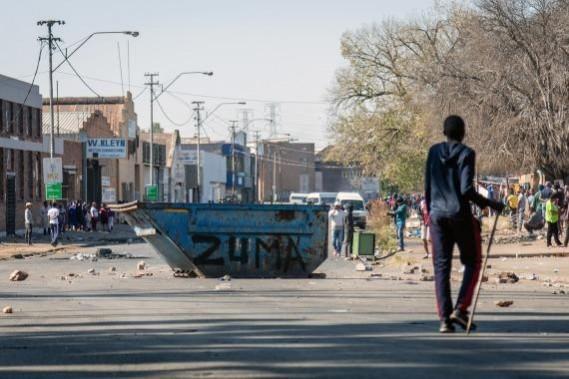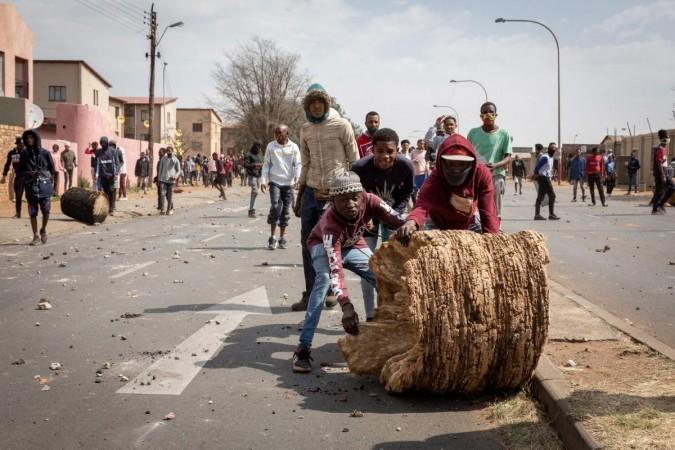At least 212 people have died in the violent protests in South Africa that erupted in the wake of former President Jacob Zuma's arrest on July 7, an official announced.
Addressing reporters on Friday, Acting Minister in the Presidency Khumbudzo Ntshavheni said the province of KwaZulu-Natal (KZN) reported 89 more deaths, bringing the cumulative total to 180 fatalities, Xinhua news agency reported
The Minister added that Gauteng, another violence-hit province, reported 32 deaths. The police has arrested 862 people in Gauteng and 1,692 more in KZN, according to the official.

Ntshavheni said the situation in Gauteng and KZN is "gradually, but firmly" returning to normality since Thursday, but it still remains tense in some areas.
The police received reports of 1,488 cases in KZN overnight while no new incidence was reported in Gauteng. The police arrested two suspects in KZN with 4,000 rounds of ammunition and unlicensed firearms.
25,000 troops deployed
The number of South African National Defence Force (SANDF) deployed has increased to 25,000. The deployment will remain until August 12.
They remain in Gauteng's hotspots and have also been deployed in other provinces because "we don't want the instigators to take advantage of other provinces", said the official. Ntshavheni said the government is working on an immediate plan on ensuring economic recovery.
The N2 and N3 highways have reopened and the transportation of key goods, food, medical supplies and fuel has commenced. The recovery of stolen goods is underway and the police continue to receive tip-offs, she added.
Zuma, once known for his fight against apartheid, has been imprisoned in the Estcourt Correctional Centre for 15 months for disobeying court orders. He did not testify before the judicial commission that was investigating accusations of corruption against him between 2009-2018.
Attacks on Indian origin people, shops
Out of 212 deaths, most of whom were of Indian origin, make the violence the country's worst post-apartheid era violence. "It is quite clear that all these incidents of unrest and looting were instigated... There were people who planned it and coordinated it," Ramphosa said on Friday.
But he did not specifically blame any party or group, only saying that his government has arrested more than 2,200 troublemakers, including several 'instigators'. "We are going after them, we have identified a good number of them, and we will not allow anarchy and mayhem to unfold in our country," Ramaphosa told mediapersons.
He said that Indian origin people are 'very important' to the country, its economy and society. "They will be defended, they have no reason to worry," Ramphosa said.

The South Africa government had said on Thursday that one of the suspected instigators had been arrested and 11 were under surveillance. In all, 2,203 people have been arrested during the unrest for various offences, including theft.
Ramaphosa did admit, however, that his government could have acted "quicker" to prevent the unrest and expressed concerns over the growing racial tension in KwaZulu-Natal.
Protests broke out a day after Ramaphosa's predecessor Jacob Zuma, who wields support among the poor and loyalists in the governing African National Congress (ANC), began a 15-month jail term for refusing to testify to a corruption investigation.
The agitations quickly turned into looting as crowds pillaged shopping malls and warehouses, hauling away goods even as the police stood by, seemingly powerless to act.
(With inputs from IANS)









